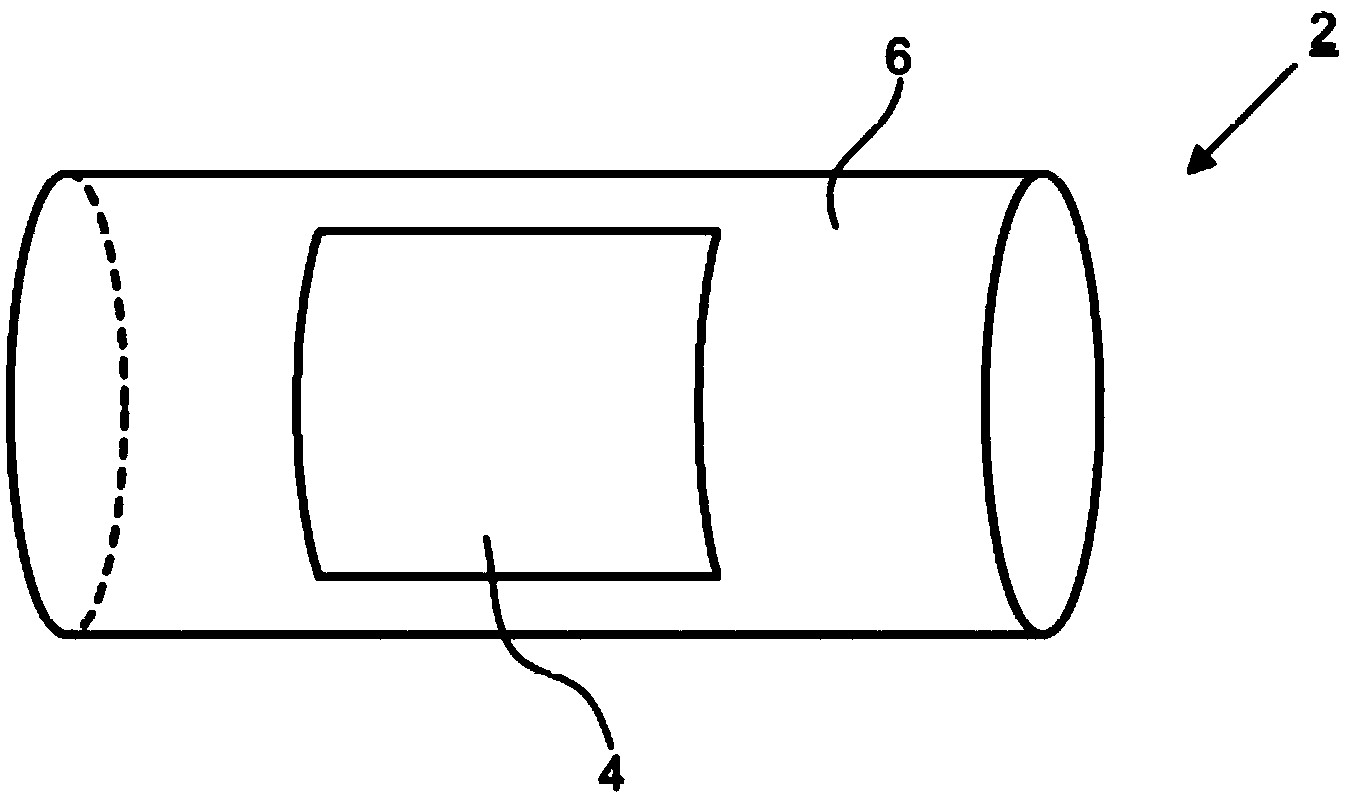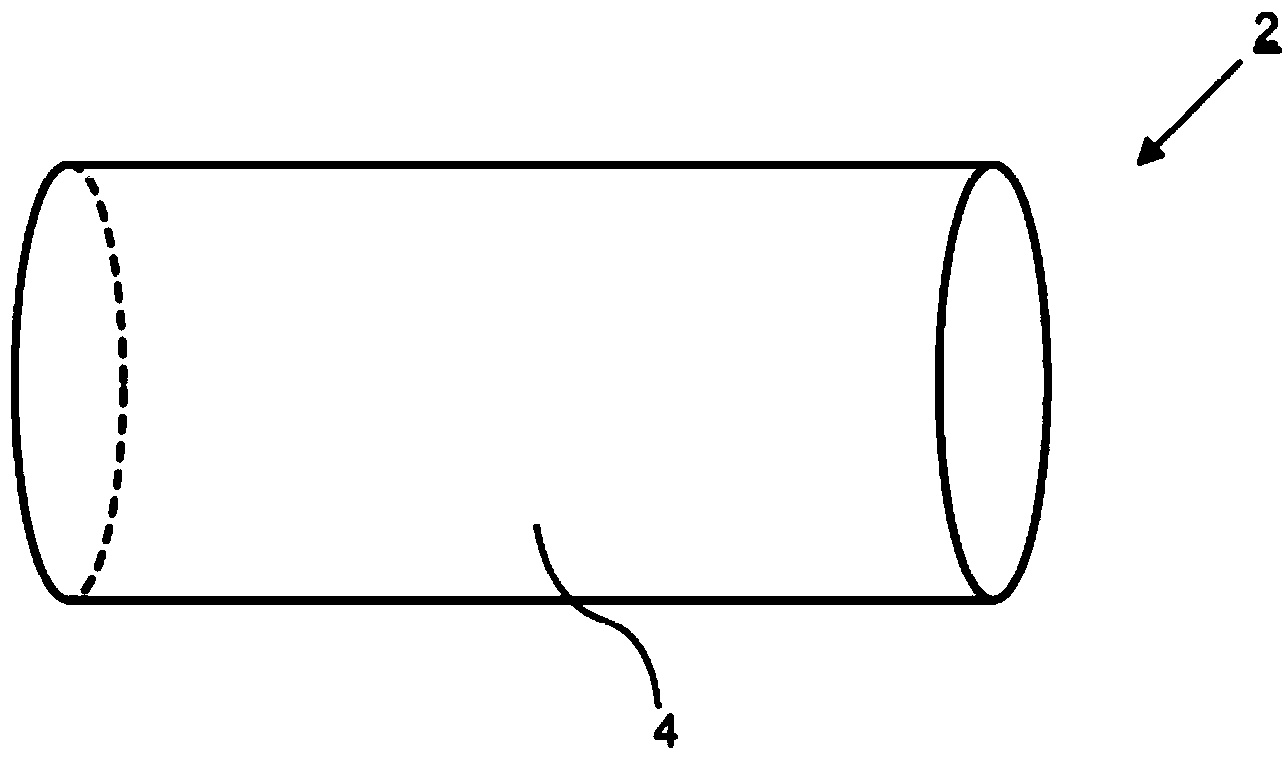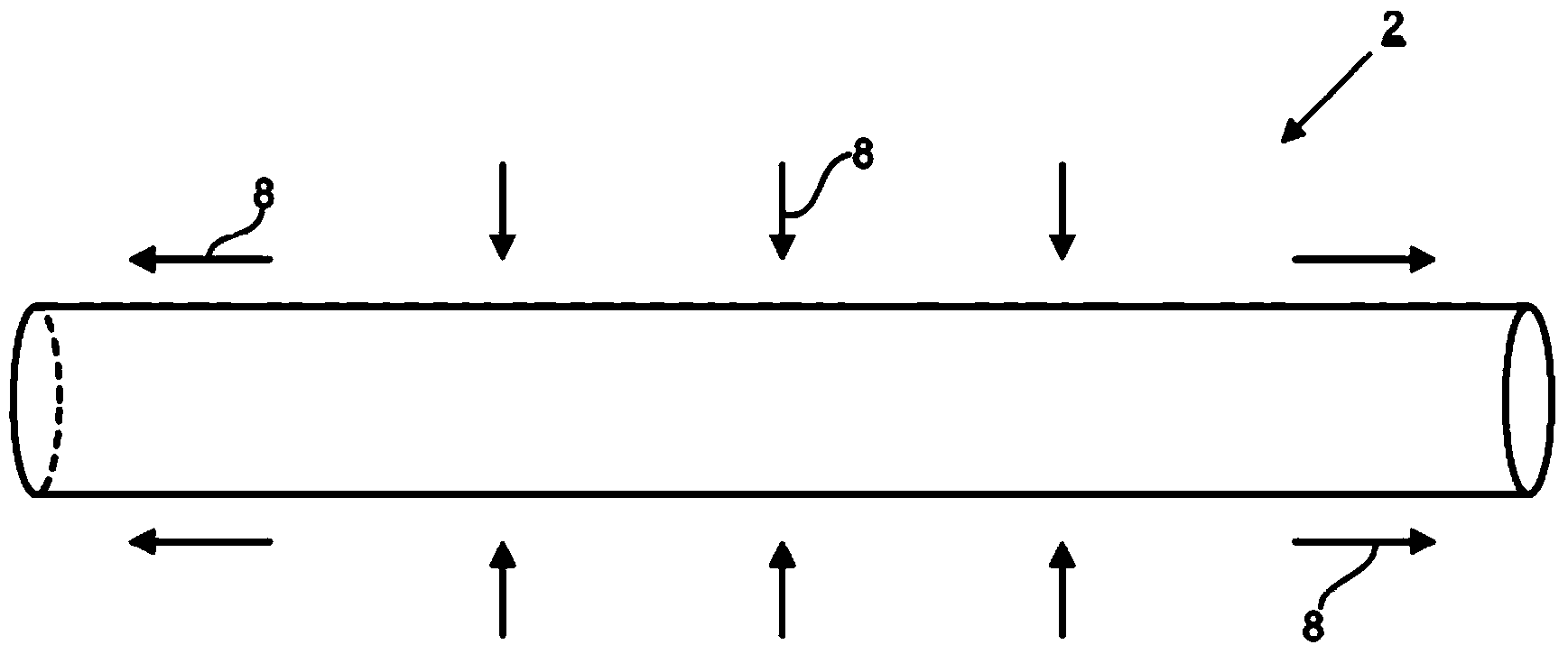Stent and method of inserting a stent into a delivery catheter
A frame and deformation element technology, applied in the field of aneurysm treatment, can solve the problems of branch vessel blockage, large radial strength, non-providing, etc., and achieve the effect of reducing the occupying effect, strong radial strength, and preventing blockage
- Summary
- Abstract
- Description
- Claims
- Application Information
AI Technical Summary
Problems solved by technology
Method used
Image
Examples
Embodiment Construction
[0031]In the following description, any reference to a deformable element should be understood to include both forward deformation (eg stretching, stretching) and reverse deformation (eg contraction). Typically, the scaffold will be formed from a material that is elastic at room temperature and / or body temperature. Typically, the stent will be configured such that the stent frame is resilient to all deformations during normal use at room temperature and / or body temperature. However, this is not required. The stent frame may be configured to allow some degree of plastic deformation at room temperature and / or body temperature.
[0032] figure 1 and figure 2 is a schematic side view of an example stent in a radially fully expanded state. The support comprises an elongated frame 2 . Frame 2 can be cylindrical, for example. When the frame 2 is cylindrical, its maximum transverse dimension is the same (ie equal to the diameter) at all positions and angles. When the frame 2 i...
PUM
 Login to View More
Login to View More Abstract
Description
Claims
Application Information
 Login to View More
Login to View More - R&D
- Intellectual Property
- Life Sciences
- Materials
- Tech Scout
- Unparalleled Data Quality
- Higher Quality Content
- 60% Fewer Hallucinations
Browse by: Latest US Patents, China's latest patents, Technical Efficacy Thesaurus, Application Domain, Technology Topic, Popular Technical Reports.
© 2025 PatSnap. All rights reserved.Legal|Privacy policy|Modern Slavery Act Transparency Statement|Sitemap|About US| Contact US: help@patsnap.com



